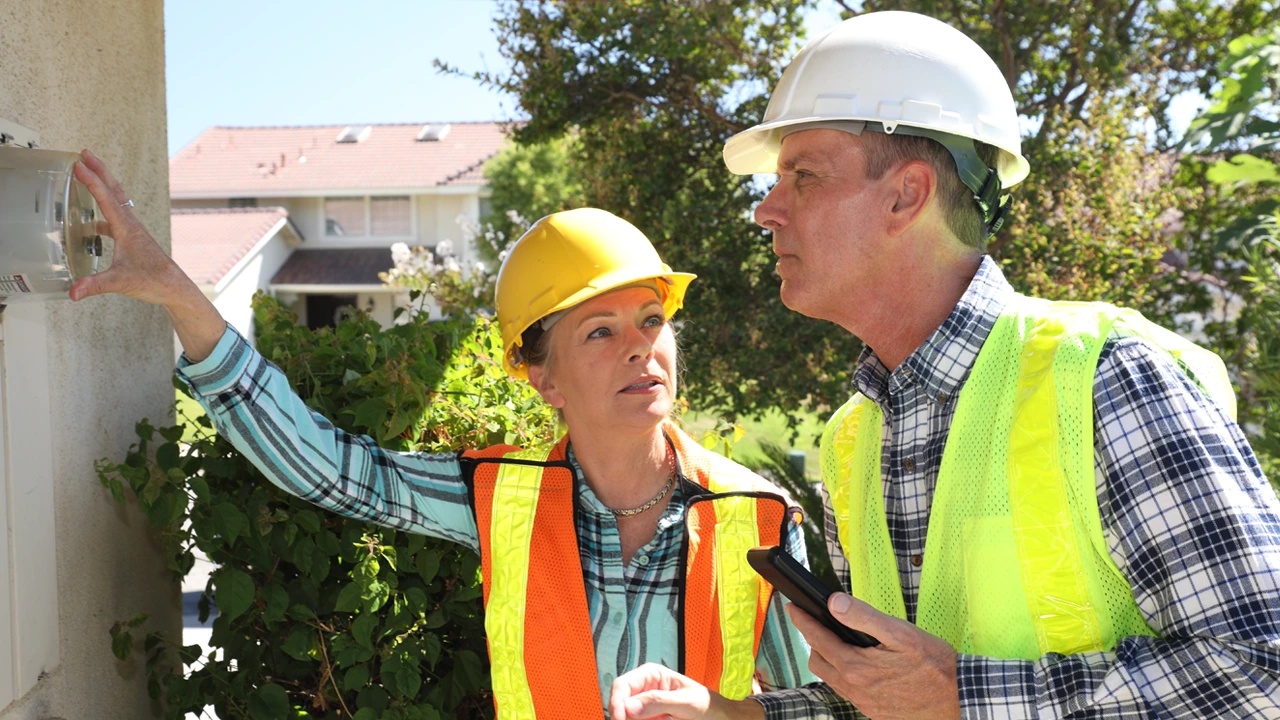Net metering is what keeps your overall utility costs down and ensures no solar power goes to waste. Let’s dive into how it works.

Before we get too far into net metering, there’s one important detail you should know: your home is still connected to the utility grid when you go solar. Going “off-grid” might sound appealing, but it would actually prevent you from experiencing the full benefits of solar. Plus, staying connected to the grid means you’ll still have power when your panels aren’t generating electricity, like at night.
So what is net metering?
In short, it’s how you earn credit on your utility bill. If your solar system produces more energy than you use, the surplus is sent back to the grid. Your extra solar power is then distributed to other homes, and you get credit on your electric bill for your contribution.
The technical side of net metering
Energy can move through your electric meter in two directions. When utility power flows into your home, the meter moves forward. When you offload unused solar power to the grid, it moves backward. Fun fact: On a sunny day, when you’re not using a lot of electricity, you may actually see your meter’s numbers or dial move backwards!
Depending on where you live, you may need a new or additional meter to ensure net metering works. That step is part of the solar installation process. If you go solar with Trinity, we’ll coordinate with the utility company on your behalf. See our step-by-step solar process.
How does the billing side of net metering work?

The solar energy you send back to the grid earns you credit from the utility company, reducing your costs. It may also cover the mandatory connection and delivery fees. We’ve even had customers with a negative balance on their utility bill because their solar systems were so productive!
What makes net metering so easy is you don’t have to do anything to use the credits. They're automatically applied to your utility bill.
What are the benefits of net metering?
- • No electricity (or money!) is wasted. If your solar system produces more than you use, you don’t need to turn on all your lights to get the biggest bang for your buck. You’ll get credits for what’s sent to the grid. Net metering also ensures no electricity goes to waste by redistributing the extra solar energy. Kudos to you for helping your neighbors!
- • Long, sunny days pay off all year long. You’ll often see net metering at work in the summer when your system produces a lot of energy. In the winter, when there are fewer daylight hours and you generate less solar power, your energy credits help you make up the difference. This is why it’s important to consider solar savings on an annual basis as opposed to monthly.
- • The demand for dirty energy decreases. The more homeowners use solar power, the less power utility companies need to produce. Less traditional energy production means lower carbon emissions.
How does net metering work in your area?
Net metering differs from one utility company to the next. It may not even be called net metering where you live. It’s important to stay up to date on what’s happening in the net metering realm because how it works does change occasionally. A Trinity Solar Expert can share the details with you. Schedule your appointment today.
Unfortunately, many utility companies are actively working to get rid of net metering. It’s no surprise: they want you to pay them, not the other way around! Thankfully, many states have net metering laws that protect this benefit because they want to encourage clean energy.
How does net metering benefit you?
We’ll show you! When you meet a Solar Expert, they’ll explain everything about solar, from what net metering is to how it impacts your energy costs.





























